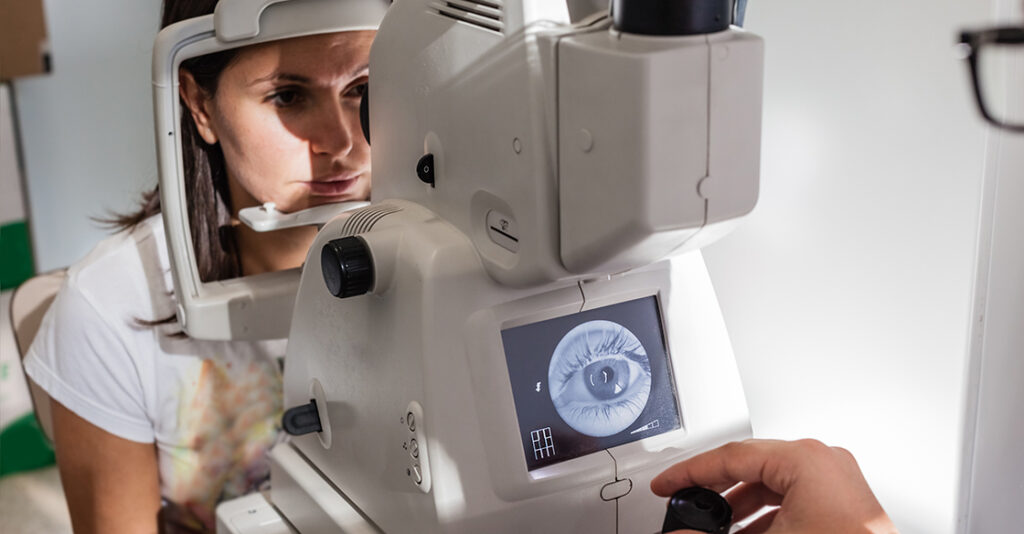Detached or Torn Retina Treatment

A retinal detachment is a very serious problem that usually causes blindness unless treated. The appearance of flashing lights, floating objects, or a gray curtain moving across the field of vision are all indications of a retinal detachment. If any of these occur, you should see an ophthalmologist right away.
As one gets older, the vitreous (the clear, gel-like substance that fills the inside of the eye) tends to shrink slightly and take on a more watery consistency. Sometimes as the vitreous shrinks, it exerts enough force on the retina to make it tear.
Retinal tears can lead to a retinal detachment. Fluid vitreous, passing through the tear, lifts the retina off the back of the eye like wallpaper peeling off a wall. Laser surgery or cryotherapy (freezing) are often used to seal retinal tears and prevent detachment.
If the retina is detached, it must be reattached before sealing the retinal tear. There are three ways to repair retinal detachments.
Pneumatic Retinopexy
Pneumatic retinopexy involves injecting a special gas bubble into the eye that pushes on the retina to seal the tear.
Scleral Buckle Procedure
The scleral buckle procedure requires the fluid to be drained from under the retina before a flexible piece of silicone is sewn on the outer eye wall to give support to the tear while it heals.
Vitrectomy Surgery
Vitrectomy surgery removes the vitreous gel from the eye, replacing it with a gas bubble, which is slowly replaced by the body’s fluids.
Why come to the Florida Eye Microsurgical Institute for detached and torn retina treatment?
Whether it is from an injury, age-related reasons, glaucoma, cataract surgery or even severe nearsightedness, a detached and torn retina can result in blindness if not diagnosed and treated as quickly as possible. The ophthalmologic surgeonsand staff at Florida Eye are accustomed to emergency eye situations and used to working with other doctors in the area to meet and exceed the needs of their patients. When we get a call about a detached or torn retina from another physician, we make arrangements for that patient to be seen as quickly as possible.
Why choose Dr. Katz?

As the Retina-Vitreous, Diabetic Retinopathy, Retinal Detachment & Macular Degeneration Specialist of Florida Eye, there is no doctor better qualified to treat this condition. Dr. Katz has the expertise and compassion necessary to make patient’s feel at ease. He takes the time to explain which of several corrective procedures is the proper one for each particular patient.
Dr. Katz specializes in the treatment of macular degeneration, diabetic retinopathy, retinal detachments, and other diseases of the retina and vitreous. Certified by the American Board of Ophthalmology and the national Board of Medical Examiners, Dr. Katz earned his fellowship in medical and surgical diseases of the retina and vitreous at the prestigious Baylor College of Medicine in Houston, Texas under the preceptorship of Dr. Alice McPherson. Dr. Katz has been practicing in his field for twenty years and for the last five has also served as Director of the Ambulatory Surgery Center, located at Florida Eye.
Thank you for your care of my mother over the years that you were her ophthalmologist. Mom was a bright woman, a former vice-president and head of the Social Action Committee of an international women’s organization. With your help, she was able to retain the sight in one eye, which enabled her to continue attending conferences, making speeches, reading, etc. She was very grateful to you for that, as am I.
Cordially, Ellen
